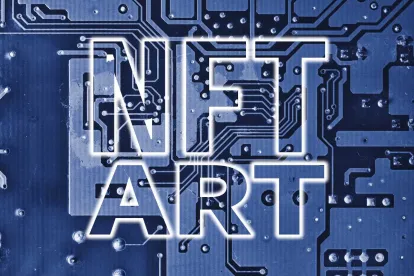In a recent post, we examined the regulatory landscape of NFTs (see here). In our third of our series on NFTs, we will address the intellectual property concerns often highlighted by NFT critics.
Intellectual Property Issues with NFTs
One of the key questions NFTs raise is who owns the copyright in the asset, and who has the right to create an NFT? Additionally, if the NFT is only the record of the link to the artwork, is the act of tokenizing (or ‘minting’) an infringement of copyright? Issues in relation to copyright and NFTs are becoming more prevalent and we have seen several instances of disputes raising thorny copyright questions.
For example, Miramax filed a copyright infringement claim in California against Quentin Tarantino after his announcing his intention to auction seven “exclusive scenes” from his original hand-written script as NFTs. A lawyer for Miramax stated:
“Whatever limited rights Mr. Tarantino has to screenplay publication, they do not permit the minting of unique NFTs associated with Miramax’s intellectual property, and his contrary position is the subject of a pending lawsuit”.
Miramax owns the rights to the film’s distribution whilst Tarantino owns the rights to the original screenplay, Miramax claims that Tarantino does not have the right to create NFTs as they were assigned to Miramax, whereas Tarantino claims that he has the rights as an artist (see here). Legal case notwithstanding, Tarantino first ‘Pulp Fiction’ NFT sold for US$1.1 Million in January 2022 through this purpose built website.
In a reverse scenario, whereby the third party distributor is sued by the original artist, the Art Wars initiative has run since 2013 and commissions artists to create different versions of the Star Wars Stormtrooper helmet. Contributors to the project include the photographer David Bailey, artist Damien Hirst and sculptor Anish Kapoor.
In late November 2021, the curator of the Art Wars initiative took photographs of the works and offered the photographs for sale as NFTs on the OpenSea Platform. By the time it was taken down, the NFT collection had raised 1,600 ETH or US$7.5 million.
David Bailey’s representative claimed that the artist had not given consent to the NFTs nor received any royalties, and stated that curator did not own the original works of art nor had a licence to create derivative works. The curator has since stated that “Any artists remaining in the project would “receive royalties in the usual way” (see here). Interestingly, the UK Supreme Court previously defined the Stormtrooper helmet copyright in, Lucasfilm Ltd & Ors v Ainsworth & Anor, although subsistence in this case is unlikely to be an issue. We were surprised when a legal claim did not follow.
Marvel and DC have both addressed the NFT issue head on by issuing a stark warning that freelance artists that they should not sell NFTs that feature their IP. Some artists have claimed that this goes against the usual practice of selling their own original comic artwork (see here). Moreover, many independent artists, who arguably should be celebrating the creation of NFTs, are complaining of their work being stolen and turned into NFTs without their consent, and many have limited options to prevent it occurring again.
In China on 20 April 2022, the Hangzhou Internet Court’s has recently ruled that a NFT platform is liable for copyright infringement for infringing NFTs traded on its platform. The case revolved around the illustration ‘Fat Tiger’. Importantly, the court found the purchasing and offering for sale of a NFT digital work is the copyright owner’s right. The platform was ordered to pay damages and to ‘burn’ the NFT by sending it to an inaccessible address (it is impossible to permanently delete an NFT). It will be interesting to see whether other countries follow suit.
These issues are not just limited to copyright, Hermès recently defeated a motion to dismiss its suit against the creator of “MetaBirkin” NFTs in a suit filed in New York. Hermès claimed the individual behind the collection of 100 ‘MetaBirkins’ NFT, which include images the iconic Birkin bag made with fur, has breached trade mark law. Hermès successfully had the MetaBirkins removed from the NFT exchange OpenSea, but the creator claims that the NFTs are art and protected under the US first amendment and is continuing to sell them. We will be watching this case closely.
What’s next for NFTs?
Safe to say that the issues involved in the intellectual property of NFTs are varied and complex, and to add to the complexity different jurisdictions will have different rules and interpretations of those rules, which always makes things difficult in this internet age. As such, we see much more litigation on the horizon in this space.
So if you want to create, ask yourself the question, who owns the copyright and what exactly am I selling?




 />i
/>i

